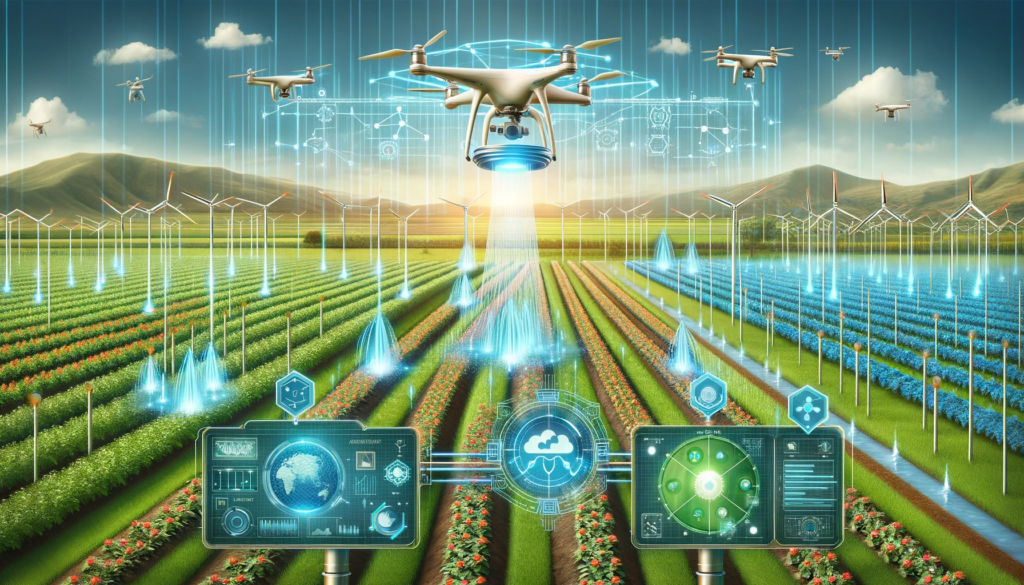Water is the lifeblood of our planet, sustaining ecosystems, agriculture, and human life itself. Yet, the challenges facing our water resources are more pressing than ever. A growing global population, climate change-induced disruptions, and unsustainable water use practices are putting immense pressure on our water supplies. In this era of water crisis, innovative solutions are not only desirable but imperative.
The question at the forefront of this discourse is whether artificial intelligence (AI) is playing a transformative role in how we manage and conserve our precious water resources. Can AI, with its data-driven insights and predictive capabilities, provide the answers to some of the most pressing water-related challenges? In this article, we embark on a journey to explore the ways in which AI is reshaping water resources management and conservation.
The Water Crisis and the Need for Innovation
The world is grappling with a water crisis of unprecedented proportions. Water scarcity affects over 40% of the global population, and billions lack access to clean drinking water. Furthermore, pollution and contamination of water sources pose severe health risks. The pressures are compounded by climate change, leading to erratic rainfall patterns, prolonged droughts, and more frequent floods.
Traditional methods of water management, often reliant on historical data and manual interventions, are ill-equipped to address these modern challenges. Innovative solutions that can adapt in real-time and optimize resource allocation are essential. AI, with its ability to process vast amounts of data and make informed decisions, emerges as a powerful tool in this context.
The Role of AI in Water Management
Artificial intelligence is ushering in a new era of water resources management through a spectrum of transformative capabilities:
- Real-time Monitoring: AI-powered sensors and Internet of Things (IoT) devices offer real-time insights into water quality and quantity. These sensors can detect contaminants, monitor water levels, and assess infrastructure health.
- Data Analytics and Predictive Modeling: AI’s data analytics prowess enables the generation of accurate and actionable insights. Predictive modeling anticipates water demand, identifies potential leaks, and optimizes water distribution, improving resource allocation.
- Automation of Water Treatment: AI algorithms are increasingly automating water treatment processes. They can adjust treatment parameters, such as chemical dosages and filtration rates, in response to changing water conditions, ensuring the delivery of safe and clean water.
AI’s applications extend beyond these facets. Machine learning algorithms can detect anomalies in water quality data, signaling potential issues. They can also optimize reservoir and dam operations, preventing both water shortages and flood risks.
These AI-driven advancements are not theoretical concepts; they are being implemented in various regions around the world, providing tangible benefits and contributing to more efficient water management practices.
As we delve deeper into this article, we will explore each of these AI-driven solutions in greater detail and assess their impact on water resources management and conservation.

Enhancing Water Conservation Efforts
Water conservation is a critical aspect of sustainable water resources management, and AI plays a pivotal role in this endeavor. Here’s how AI is contributing to water conservation:
- Smart Irrigation Systems: AI-powered smart irrigation systems in agriculture optimize water usage by analyzing weather data, soil moisture levels, and crop requirements in real-time. This ensures that crops receive the right amount of water, reducing waste and enhancing agricultural efficiency.
- Leak Detection: AI-driven leak detection systems monitor water infrastructure and identify leaks or anomalies promptly. By preventing water losses through early detection, these systems help conserve significant volumes of water and reduce maintenance costs.
- Behavioral Analytics: AI algorithms analyze consumer behavior patterns to identify opportunities for water conservation at the household level. For example, they can suggest water-saving habits and alert consumers to potential water wastage, promoting responsible water use.
The implementation of AI in water conservation not only reduces wastage but also contributes to the sustainability of water resources by ensuring that water is used more efficiently across various sectors.
Addressing Climate Change Impacts
Climate change poses a formidable challenge to water resources management. AI is stepping in to assist in both adaptation and mitigation efforts:
- Climate Modeling: AI-driven climate modeling helps water resource managers anticipate the impacts of climate change on precipitation patterns, river flows, and drought frequency. This predictive capability enables better long-term planning for water allocation.
- Early Warning Systems: AI-powered early warning systems can detect and predict extreme weather events, such as floods and droughts. By providing timely alerts, these systems enable proactive measures to protect communities and water infrastructure.
- Infrastructure Resilience: AI analytics assess the vulnerability of water infrastructure to climate-related risks. This information helps prioritize infrastructure upgrades and investments to ensure resilience in the face of changing climate conditions.
As climate change continues to influence water resources, AI’s role in adaptation and mitigation becomes increasingly critical for ensuring water availability and resilience.
Ethical Considerations and Challenges
The integration of AI into water resources management is not without ethical considerations and challenges. These include:
- Data Privacy: The use of AI requires extensive data collection, raising concerns about data privacy and security. Protecting sensitive water-related data is paramount, and regulatory frameworks must be established to safeguard this information.
- Algorithmic Bias: AI models may inherit biases present in their training data, potentially leading to unfair decision-making. Ensuring that AI systems are designed and audited for fairness is essential to prevent discrimination in water management.
- Cost of Implementation: Implementing AI technologies can be financially burdensome, especially for resource-constrained regions. Overcoming the cost barrier and ensuring equitable access to AI-driven solutions are challenges that need to be addressed.
- Skilled Workforce: The successful deployment of AI in water management relies on a skilled workforce capable of understanding and operating these technologies. Adequate training and education are necessary for personnel to harness the full potential of AI.
- Regulatory Compliance: The regulatory landscape for AI in water management is still evolving. Clear guidelines and standards are needed to ensure responsible AI deployment and compliance with legal and ethical standards.
The Future of Water Resources Management with AI
Looking ahead, the future of water resources management is undeniably intertwined with AI. As technology advances and AI algorithms become more sophisticated, we can anticipate several key developments:
- AI-Integrated Water Infrastructure: AI will be seamlessly integrated into water infrastructure, enabling autonomous decision-making and predictive maintenance.
- AI for Remote Sensing: Advanced remote sensing technologies, combined with AI, will enhance monitoring and management of water resources in remote or hard-to-reach areas.
- Cross-Sector Collaboration: Collaboration between governments, research institutions, tech companies, and communities will be crucial to harness AI’s full potential for water management.
- AI-Enabled Policy Insights: AI will provide policymakers with data-driven insights to inform water management policies, leading to more effective and sustainable strategies.
- AI in Water Research: AI will continue to drive innovation in water research, unlocking new solutions for desalination, water purification, and sustainable water sourcing.

In conclusion, artificial intelligence is indeed transforming the way we manage and conserve water resources. It empowers us to make informed decisions, optimize resource allocation, and mitigate the impacts of climate change. While ethical considerations and challenges exist, the promise of AI in water management offers hope for a more sustainable and water-secure future.
